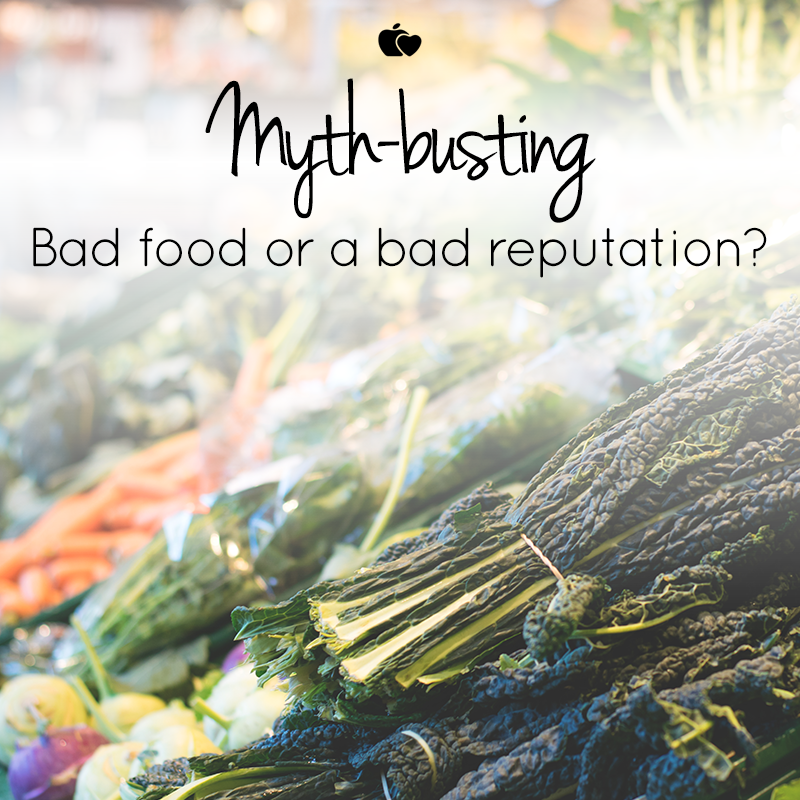Myth-busting: Bad food or bad rep?
Nutrition and health can be simple, but with so much conflicting information out there, it’s easy to get confused. Many foods get a bad rep, but we want to know if they’re really as bad as they’re made out to be.

To help us understand, we spoke to Nutritionist Resource member, Susan Hart.
Many of the foodstuffs that are labelled as not being good for us, are usually that for a reason! However, with that caveat in mind, there are some foods that can (in moderation) be part of a healthy balanced diet.
Caffeine
Caffeine improves both mood and brain function and in effect, can make you think quicker. It can also temporarily ward off drowsiness and restore alertness. It can be beneficial in the reduction of long-term weight gain by slightly raising your metabolic rate and can also enhance physical performance.
For most healthy adults, moderate doses of caffeine, 200 to 300 milligrams, or about two to four cups (not mugs or takeaway cups) of freshly brewed coffee a day, aren’t harmful. But beware! Chocolate, tea, coke, energy drinks and some painkillers also contain caffeine, and if you consume them all regularly, you could exceed the safe limits.
Bacon
Bacon is cured pork and can be dry or wet cured (often using salt, sugar, nitrates, and smoke). If most of the fat is removed and the bacon is grilled, it can be a quick and ready protein source, making it a good, occasional breakfast choice. Also, many people who eat protein at breakfast will eat fewer calories throughout the rest of the day as they feel fuller for longer.
The World Health Organisation (WHO) has advised that 50g of processed meat (equivalent to 2 slices of bacon) should be the maximum amount per day. But if you consume bacon and other processed meats such as ham, sausages, hot dogs, salami, corned beef, pepperoni and pastrami, you could exceed this limit. Exceeding this limit is thought to potentially increase your risk of bowel cancer.
Full fat yoghurt
For years we have been persuaded to swap full fat dairy, yoghurt and cheeses for ‘reduced fat’ (which means the food must contain at least 25% less fat than the regular product). But what we now know, is that many reduced and low-fat dairy products like yoghurts are highly processed and could contain higher levels of sugar, artificial sweeteners, starches and gelatine. Full fat versions, if eaten in smaller quantities, provide a more natural food that can lead to greater satiety and therefore you may consume fewer calories in the day. They also have higher levels of fat-soluble vitamins, which form part of a healthy, balanced diet.
Avocado
Half an avocado has about 140 calories (although the official serving is much smaller; 30g or one-fifth of the fruit), but people tend to focus on the fat content. This is without doubt high at 14g, but most of this is in the form of omega-3 fatty acids, or the good sort! Aside from the good fat, which helps carry fat-soluble vitamins (A, D, E and K), avocados are low in sugar and high in fibre, helping you feel fuller for longer. Research suggests that regular avocado eaters have higher HDL cholesterol levels (the good cholesterol), which may reduce your risk of heart disease.

Find a nutritionist dealing with Healthy eating
All nutrition professionals are verified





